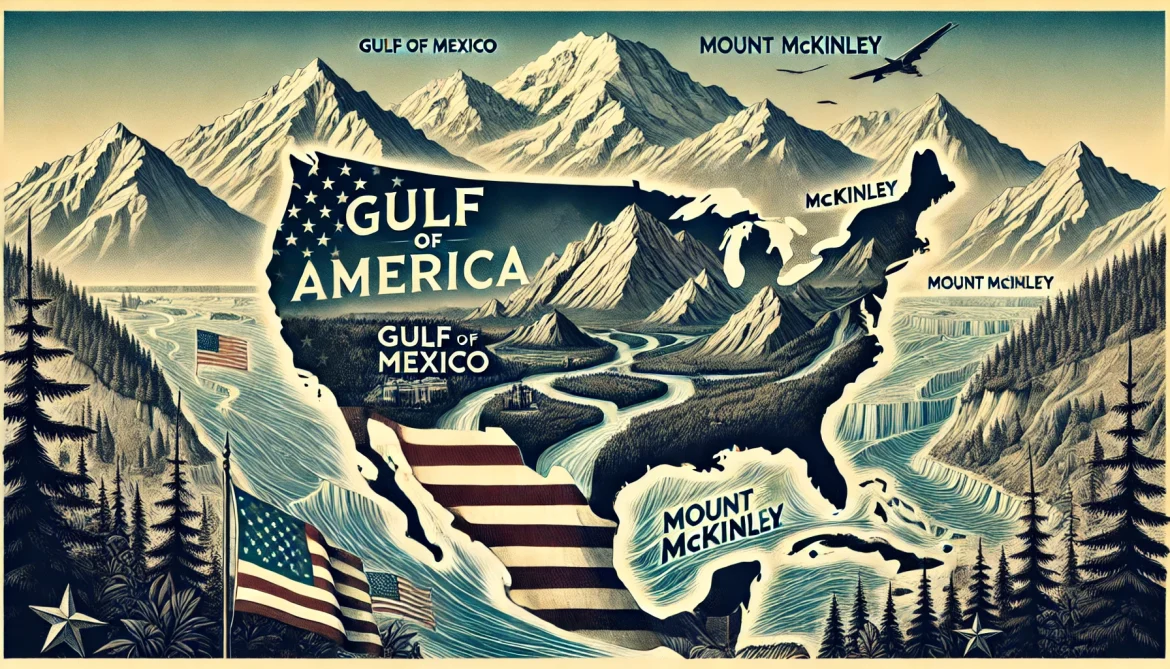Google announces plans to update the names of two prominent geographic features in Google Maps following a directive issued by President Donald Trump last week. The Gulf of Mexico will be renamed the Gulf of America, and Alaska’s Mount Denali will revert to its former name, Mount McKinley. The changes will take effect after updates are finalized in the U.S. Geographic Names System.
The decision to rename these landmarks has sparked widespread debate across the country. President Trump’s executive order cites a desire to reinforce American identity and history as the primary motivation behind the changes. The Gulf of Mexico, a key body of water bordering the southern United States, has long been central to the country’s energy, shipping, and environmental industries. By renaming it the Gulf of America, Trump aims to emphasize the United States’ influence and ties to the region.
Similarly, the move to restore the name Mount McKinley has drawn attention for its symbolic reversal of a 2015 decision by the Obama administration to rename the peak Denali. The name Denali, meaning “the high one” in the language of Alaska’s Koyukon Athabascans, was seen as a nod to the region’s Indigenous heritage. Restoring the name Mount McKinley honors President William McKinley, who served from 1897 to 1901 but had no direct connection to the mountain or Alaska.
Google spokesperson Sarah Thompson confirmed that the company is aligning its digital mapping platform with the federal government’s updated nomenclature. “Our mission is to provide accurate, up-to-date information to users around the world. As soon as the U.S. Geographic Names System reflects these changes, we will implement them in Google Maps,” Thompson said.
Public reaction to the renaming effort has been deeply polarized. Supporters of the changes, including many conservatives, argue that the renaming strengthens national pride and highlights American historical figures. Critics, however, view the move as a politically motivated revision of history that disregards cultural and environmental significance. Indigenous leaders in Alaska have expressed disappointment over the decision to rename Denali, calling it a dismissal of their heritage and longstanding ties to the land.
Environmental groups also raise concerns about the renaming of the Gulf of Mexico. Many argue that the name Gulf of America overshadows the geographic and cultural connections shared by the United States, Mexico, and other nations bordering the gulf. They warn that the change could have unintended diplomatic consequences, particularly as the U.S. works with Mexico on environmental and trade initiatives.
Lawmakers on both sides of the aisle are weighing in on the controversy. Senate Minority Leader Chuck Schumer criticizes the decision, calling it a “distraction from the pressing issues facing the nation.” Meanwhile, Republican lawmakers largely praise the move, framing it as a reassertion of American identity in an increasingly globalized world.
As the U.S. Geographic Names System processes the updates, Google prepares to make the changes visible to millions of users worldwide. Other map providers are likely to follow suit, sparking additional conversations about the balance between historical recognition and cultural preservation.
The renaming effort is expected to remain a contentious topic, reflecting broader debates over the nation’s history and identity. As the changes take effect, their reception will continue to shape public discourse and political narratives in the months ahead.



